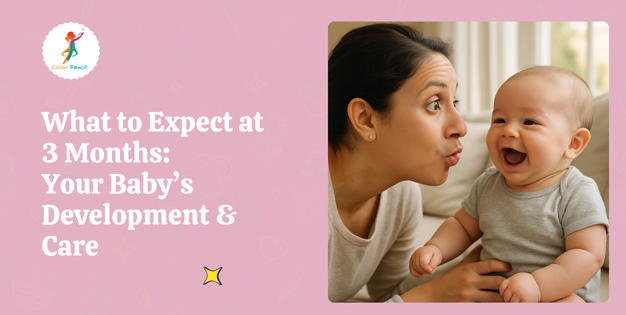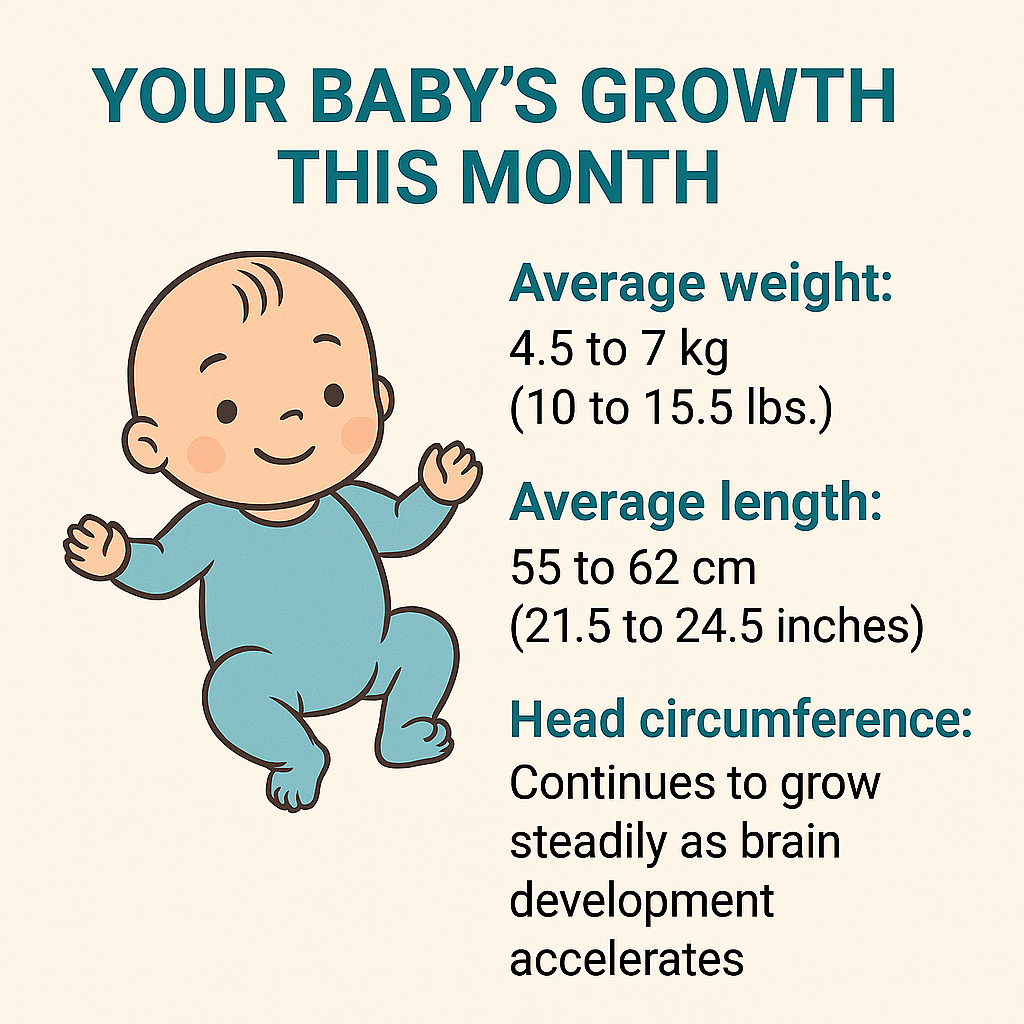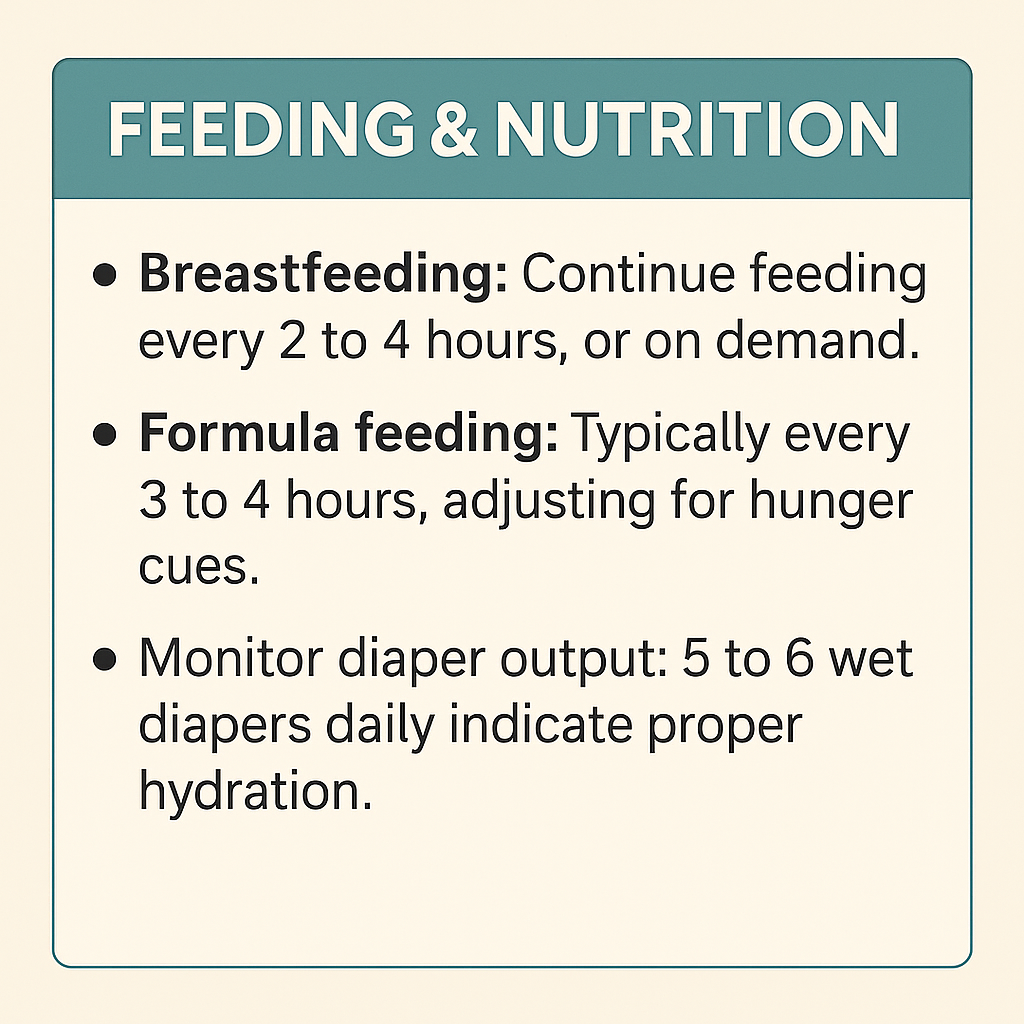Milestones, Growth, Sleep, Feeding, and Practical Tips for the Third Month
By 3 months, your baby is becoming noticeably more interactive and curious about the world. Smiles are more frequent, sleep patterns may be improving slightly, and you might even hear the first joyful giggles. While every baby develops at their own pace, this month typically brings exciting changes in physical growth, communication, and motor skills.
Here’s what to expect during your baby’s third month.
🍼 Your Baby’s Growth This Month
- Average weight: 4.5 to 7 kg (10 to 15.5 lbs).
- Average length: 55 to 62 cm (21.5 to 24.5 inches).
- Head circumference: Continues to grow steadily as brain development accelerates.
Note: Your pediatrician will monitor weight, length, and head size to ensure healthy growth.
👶 Developmental Milestones
Your 3-month-old may begin to:
- Hold head up more steadily during tummy time and when being held upright.
- Smile socially in response to voices and faces.
- Coo and gurgle as a way to communicate and respond to caregivers.
- Visually track moving objects or faces across short distances.
- Kick legs and move arms with more coordination.
🎯 Firsts to Watch For
- Longer periods of alertness and interaction.
- First giggles or laughter in response to stimuli.
- Improved head control during tummy time and when supported.
- Responding with coos when spoken to.
🍽 Feeding & Nutrition
- Breastfeeding: Continue feeding every 2 to 4 hours, or on demand.
- Formula feeding: Typically every 3 to 4 hours, adjusting for hunger cues.
- Growth spurts around this age may lead to brief periods of increased feeding frequency.
- Monitor diaper output: 5 to 6 wet diapers daily indicate proper hydration.
🌙 Sleep Patterns
- Total sleep: About 14 to 16 hours per day.
- Nighttime stretches may extend up to 5–6 hours for some babies, though many still wake more frequently.
- Daytime naps are common, though schedules are still variable.
Tip: Continue safe sleep practices—back sleeping on a firm mattress with no loose bedding or soft toys.
💉 Vaccines & Health Checks
- 3-month well-baby check-up (in some regions).
- Discuss any concerns about feeding, sleep, motor development, or behavior.
- Review of prior vaccinations and scheduling of upcoming doses.
🤒 Common Health Notes
- Teething signs may begin (drooling, mouthing hands), though actual teeth often appear later.
- Spitting up remains common and typically peaks around this time.
- Watch for any unusual symptoms like fever, excessive crying, or feeding refusal and contact your pediatrician if concerned.
🔔 Parental Care Reminders
- Keep practicing daily tummy time to strengthen muscles.
- Begin introducing simple play activities like rattles or soft toys.
- Talk and sing often to encourage early language skills.
- Prioritize self-care—parenting is demanding, and your well-being matters too.
Pro Tips for Parents This Month
- Encourage eye contact and respond to your baby’s vocalizations to support social development.
- Use a variety of sounds and facial expressions during interactions.
- Document milestones and cherish these early bonding moments—they pass quickly!
Final Thoughts
At 3 months, your baby is transitioning from the newborn phase into a more interactive, expressive stage. While daily care remains focused on feeding and sleep, the growing social connection and emerging skills make this month especially rewarding. Continue supporting your baby’s development with love, patience, and lots of engagement.
Visited 182 times, 1 visit(s) today





